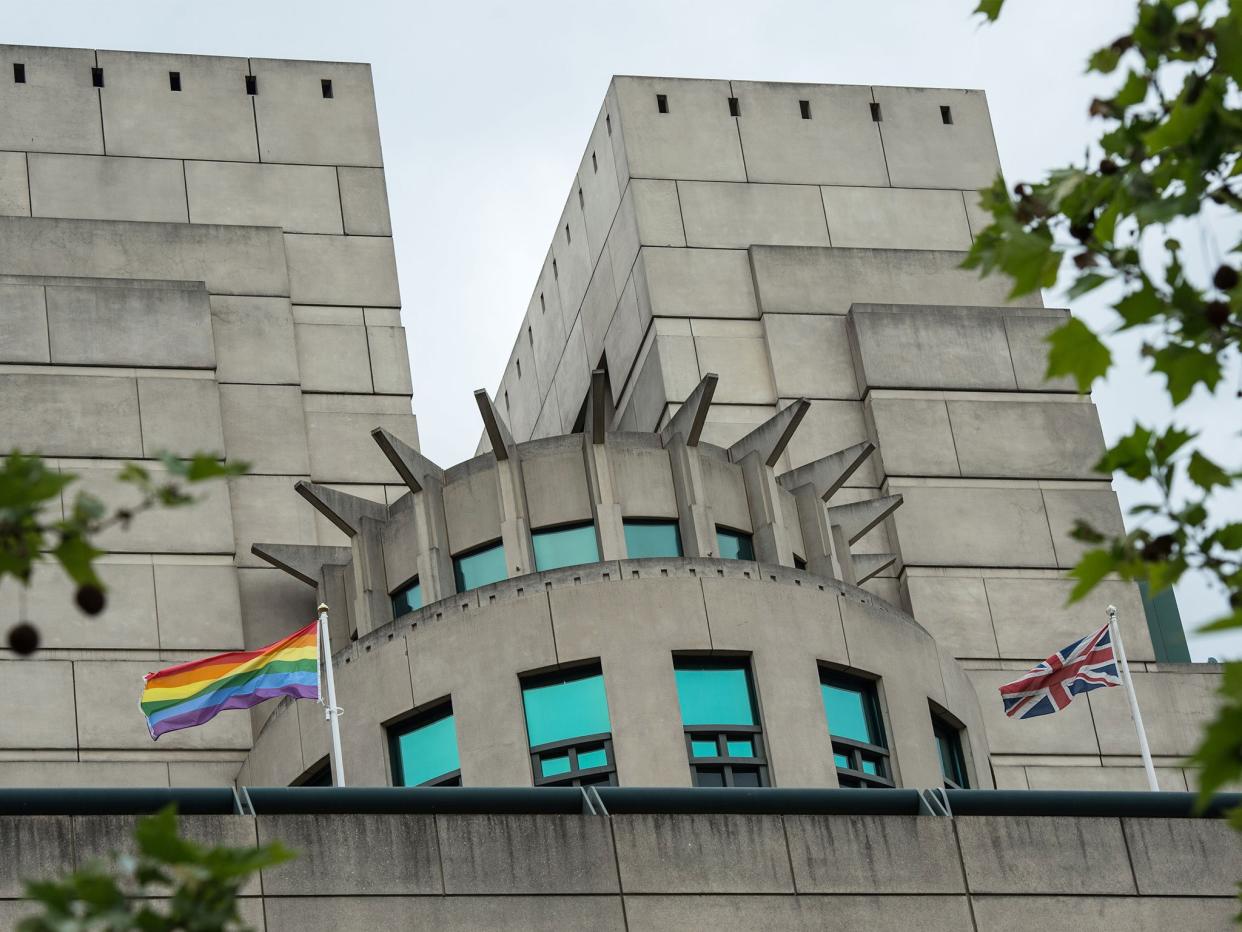MI5 and MI6 have 'glaring lack' of ethnic minority and female staff at senior levels, report reveals

Just one of Britain’s four main security agencies have any high-ranking ethnic minority staff, while women hold a disproportionately low number of senior positions, MPs have revealed.
Although “significant progress” has been made in making MI5, MI6, GCHQ and the MoD’s Defence Intelligence agency more inclusive, the Intelligence and Security Committee of Parliament (ISC) found that “at senior level in particular the intelligence community is still not gender-balanced and does not fully reflect the ethnic makeup of modern Britain”.
The committee added: “There is a glaring lack of black, Asian and minority ethnic [BAME] staff at senior civil service levels across the community.”
Only GCHQ has any senior staff who are black, Asian or from other ethnic minorities. And although 31 per cent of the senior civil servants in MI5 are women, that figure is considerably lower – around 25 per cent – across the other agencies and the rest of the intelligence community, the report said.
Dominic Grieve, chairman of the ISC, said: “In an increasingly competitive employment market, it is important that the UK intelligence community is able to attract, and draw upon, the skill, talent and experience of all sectors of our society – to reflect, protect and promote our values and keep our nation safe.
“It is essential that these organisations reflect the UK of today with a diverse and inclusive workforce. Diversity encourages challenge, drives innovation and ensures better decision-making – whilst this is important in any organisation or sector, it is an operational imperative for the intelligence community.”
MI6 recently launched its first television advert aimed at attracting recruits from ethnic minorities and women, and breaking stereotypes. The head of the service, Alex Younger, said: “I want to dispel the myths that still too often see potential candidates rule themselves out.
“My message remains simple, there is no ‘standard’ MI6 officer: if you have what it takes, then apply to join us. Our work is exciting, intellectually challenging, and it matters. Regardless of background, if you have the skills we need and share our values, I want you to consider a career in intelligence in a service that reflects today’s society – MI6 needs the best people this country has to offer.”
The ISC report, Diversity and Inclusion in the UK Intelligence Community, examined four key protected characteristics under the 2010 Equality Act – gender, race, sexuality and disability. It pointed out that MI5 and MI6 have both appeared in lists of the top 50 employers for women – and those two agencies, as well as GCHQ and the Home Office, are included in the top 100 employers category of the LGBT rights group, Stonewall.
“We have heard from the heads of each of the organisations about their personal commitment to diversity and the significant work they are doing to create more inclusive workplaces,” the report said. “However, as many of the people we have spoken to have acknowledged, there is much still to be done.”
One of the problems with ethnic minority recruitment, said the ISC, is security vetting “which is bureaucratic, takes too long and is widely considered by many of those we met to be an inhibitor to diversity and nationality rules, and that the wider public often has inaccurate and outdated perceptions about the agencies in particular, and the type of staff they are now looking to recruit”.
More emphasis must be placed on collecting data about diversity in the agencies, the committee added. “Until an organisation knows where it stands and how it is performing, it cannot define and deliver progress,” the report said.
“Agencies’ recruitment campaigns continue to do all they can to challenge stereotypes and attract a more diverse range of applicants from under-represented groups.
“Unfortunately, the current data across the intelligence community is not sufficiently robust. In addition, the committee has not, with the notable exception of MI5, been provided with the declaration rates for new recruits and entrants to the agencies and organisations.
“This makes it difficult to properly evaluate BAME, LGBT and disability figures for those embarking on, or continuing, their careers in the intelligence community.”
However, the ISC acknowledged that “at an organisational level we have seen that the three intelligence agencies in particular are working together effectively, sharing resources and best practice, and have also developed strong partnerships with external organisations – in particular with [the charity] Business in the Community on gender issues and Stonewall on LGBT matters.”

 Yahoo News
Yahoo News 
